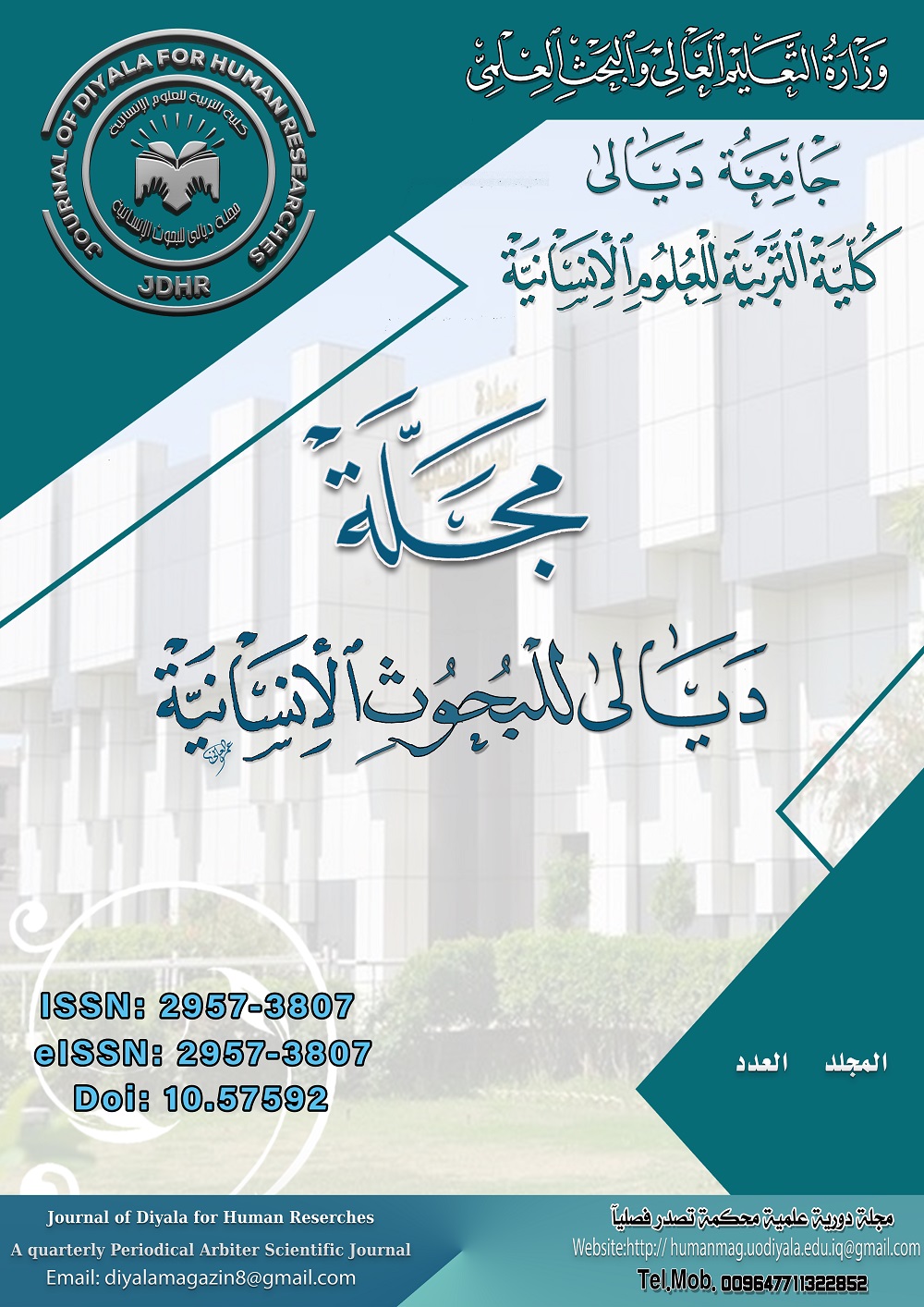Cultural and Migrant Identities in Cristina Henríquez's Novel "The Book of Unknown Americans": Using Homi Bhabha’s theories, a Postcolonial study
DOI:
https://doi.org/10.57592/cfknfz65Abstract
Downloads
Published
2025-10-22
Issue
Section
بحـــــــوث العــــــدد
License
Copyright (c) 2025 Abdulsattar Jubair Mohammed

This work is licensed under a Creative Commons Attribution-NonCommercial 4.0 International License.

